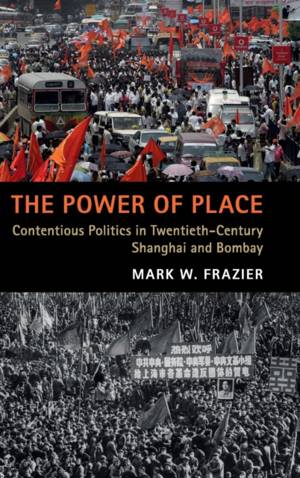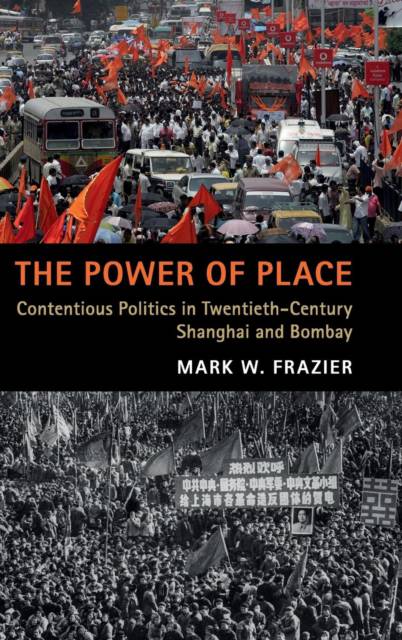
- Afhalen na 1 uur in een winkel met voorraad
- Gratis thuislevering in België vanaf € 30
- Ruim aanbod met 7 miljoen producten
- Afhalen na 1 uur in een winkel met voorraad
- Gratis thuislevering in België vanaf € 30
- Ruim aanbod met 7 miljoen producten
Zoeken
The Power of Place
Contentious Politics in Twentieth-Century Shanghai and Bombay
Mark W Frazier
Hardcover | Engels
€ 145,95
+ 291 punten
Uitvoering
Omschrijving
Riots, strikes, and protests broke out in the streets of Shanghai and Bombay (renamed Mumbai in 1995), with impressive frequency during the twentieth century. Many of the landmark protests and social movements had close connections with the neighborhoods, workplaces, and civic space of each city. By the late twentieth century, as the political geography of each city changed rapidly with the commodification of urban land, so too did the patterns of political contention. Using a comparative historical lens, Frazier chronicles the political biographies of these two metropolises and leading centers of manufacturing and finance. Debates over ideology, citizenship, and political representation took material form through clashes over housing, jobs, police violence, public space, among much else, in the lived experience of urban residents. Frazier puts contemporary debates over informal housing, eviction of inner-city residents, scarcities of manufacturing jobs, and questions of unequal citizenship in an illuminating historical context.
Specificaties
Betrokkenen
- Auteur(s):
- Uitgeverij:
Inhoud
- Aantal bladzijden:
- 310
- Taal:
- Engels
Eigenschappen
- Productcode (EAN):
- 9781108481311
- Verschijningsdatum:
- 4/07/2019
- Uitvoering:
- Hardcover
- Formaat:
- Genaaid
- Afmetingen:
- 152 mm x 229 mm
- Gewicht:
- 589 g

Alleen bij Standaard Boekhandel
+ 291 punten op je klantenkaart van Standaard Boekhandel
Beoordelingen
We publiceren alleen reviews die voldoen aan de voorwaarden voor reviews. Bekijk onze voorwaarden voor reviews.







